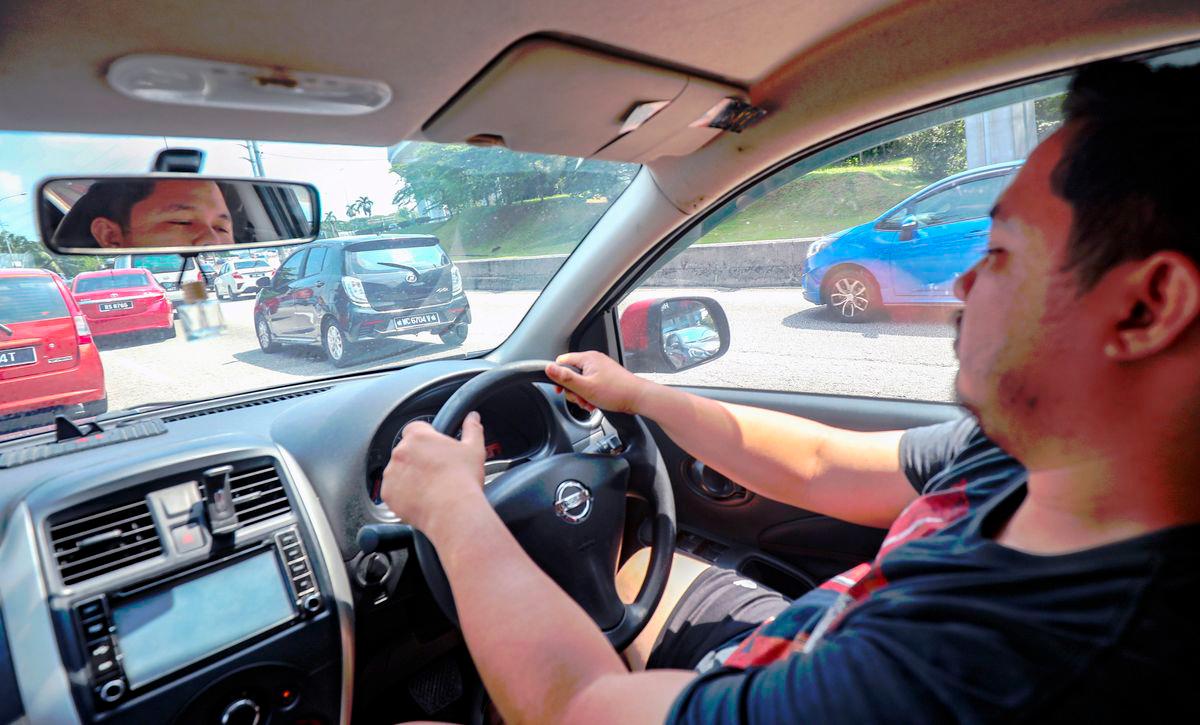KUALA LUMPUR: Vehicles that will not start if drivers are drowsy, unwell or impaired may soon become a reality, as Transport Deputy Minister Datuk Hasbi Habibollah calls for bold, tech-driven solutions to address road safety in Malaysia.
Speaking at the MOVE Symposium at Automechanika KL 2025, Hasbi said future road safety may rely on cars that assess a driver’s fitness before unlocking the ignition system – much like a health-monitoring failsafe – to keep unfit drivers off the road.
“We’re no longer just talking about how you drive, but whether you’re fit to drive at all. Why not? It’s simple technology.
“If a system can detect that you’re unfit, whether due to low blood sugar or fatigue, it should be able to prevent you from starting the vehicle,” he suggested.
Highlighting Malaysia’s road safety concerns, Hasbi emphasised the importance of digital innovation in reducing fatalities and risky behaviour among motorists.
He pointed to fatigue training, AI-powered microsleep detection, digital fleet monitoring and the new voluntary “Track Score” rating for dashcam and telematics providers as tools that could help mitigate human error, enhance vehicle safety and improve infrastructure.
He added that technologies such as dashcams, advanced driver-assistance systems and telematics are empowering both enforcement agencies and road users to act more responsibly.
“We’re laying the groundwork for the future rollout of an in-vehicle monitoring system. With the right safeguards, data from these systems can not only monitor behaviour but also help prevent crashes before they happen.”
Reaffirming the ministry’s commitment to road safety, Hasbi urged the automotive industry to prioritise five-star-rated vehicles and adopt cutting-edge technologies, particularly in sandboxed testing zones that support micro-mobility solutions.
At the event, Hasbi also witnessed the signing of a memorandum of agreement between the Malaysian Institute of Road Safety Research and Alpha International Training and Consultancy to jointly develop road safety training programmes.
Alpha International chief executive Prof Dr Louis Adaikalam, who also leads the Malaysia Sleep Apnea Association, said sleep-related health issues have reached alarming levels in the country.
He cited a global analytics study showing nine in 10 Malaysians experience medical problems linked to poor sleep.
He added that Malaysians juggling multiple jobs are particularly vulnerable to chronic sleep deprivation, putting them at risk of microsleep, a danger he described as comparable to driving under the influence.
“Over one billion people globally suffer from sleep-related issues. In fact, the US has declared it a public health epidemic.”
Citing police statistics as of May 13, Louis said Malaysia recorded 134,206 road crashes and 1,050 fatalities.
Fatigue and microsleep were identified by police as major contributors.
He explained that fatigue is not only caused by overwork but could also stem from conditions such as sleep apnea, diabetes or unhealthy lifestyles.
“Many Malaysians are unaware they have sleep disorders. A US study found individuals with sleep apnea are 123% more likely to be involved in road crashes. Even reducing sleep from eight to six hours raises crash risk by 33%.”
Louis and his team have launched a world-first initiative – the Sleep and Fatigue Recovery and Management Programme – endorsed by the United Nations.
The two-day programme, developed with support from the Malaysian Institute of Road Safety Research, Human Resource Development Corporation and the Malaysia Productivity Corporation, includes medical sleep assessments, stress evaluations and aritificial intelligence (AI)-based microsleep detection.
“Through AI and wearable medical devices, we can now predict health risks linked to poor sleep. For instance, if you’re consistently sleeping only four hours a night, you could develop hypertension in six months, diabetes in two years and potentially be involved in a microsleep-induced crash.”
He stressed that while in-vehicle drowsiness detection systems are useful, public education on sleep health must remain the top priority.
“I urge employers to introduce sleep health programmes for their workers. These initiatives not only support employee well-being but also qualify under sustainability and productivity frameworks.”









